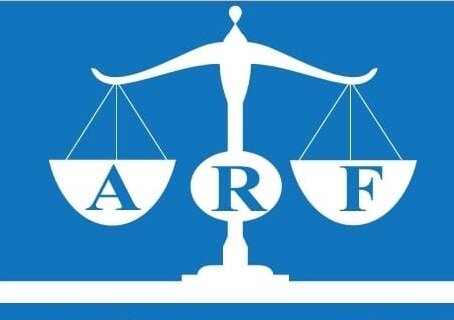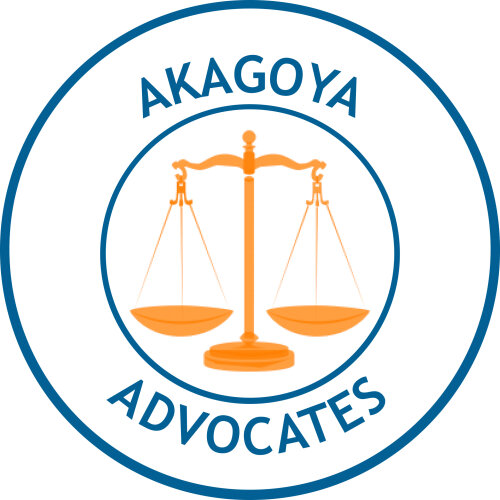Best Corporate Governance Lawyers in Uganda
Share your needs with us, get contacted by law firms.
Free. Takes 2 min.
Or refine your search by selecting a city:
List of the best lawyers in Uganda
About Corporate Governance Law in Uganda
Corporate governance refers to the systems, principles, and processes by which companies are directed and controlled. In Uganda, corporate governance focuses on establishing a framework to ensure accountability, transparency, integrity, and ethical management within organizations. The law sets out how companies are managed at the board level, the rights and responsibilities of various stakeholders, and the structures needed to promote effective decision-making and risk management. Uganda’s approach to corporate governance is shaped by local legislation, global best practices, and oversight by regulatory bodies.
Why You May Need a Lawyer
Seeking legal advice in matters of corporate governance is important for both new and established businesses. Common situations where you may require help from a lawyer include:
- Setting up a company and ensuring compliance with the Companies Act.
- Drafting or reviewing shareholders' agreements, board charters, and company constitutions.
- Resolving disputes between shareholders, directors, or other stakeholders.
- Advising on duties and responsibilities of directors and officers.
- Ensuring compliance with regulatory requirements and filing obligations with the Uganda Registration Services Bureau (URSB).
- Corporate restructuring, mergers, and acquisitions.
- Preventing or responding to allegations of mismanagement or fraud within the organization.
Local Laws Overview
Several laws in Uganda govern corporate governance practices. The main pieces of legislation and regulations include:
- The Companies Act, 2012 - This is the primary law regulating company formation, management, and dissolution. It outlines directors’ duties, board meetings, shareholder rights, reporting requirements, and corporate records.
- Capital Markets Authority Act - This law applies to public companies and those listed on the Uganda Securities Exchange, imposing higher standards of disclosure, transparency, and governance.
- Uganda Investment Code Act - Provides additional rules for foreign and local investments, including codes of conduct for management and operation of businesses.
- Sector-Specific Guidelines - Certain sectors, such as banking, insurance, and telecommunications, are subject to additional governance regulations enforced by the Bank of Uganda or respective regulatory agencies.
- Codes of Corporate Governance - The Institute of Corporate Governance of Uganda (ICGU) provides guidelines to help organizations adopt best practices, though these are not always legally binding.
Frequently Asked Questions
What is the role of directors under Ugandan corporate governance law?
Directors are responsible for managing the company’s affairs, ensuring it operates in compliance with the law, and acting in the best interests of the company. Directors must act honestly, avoid conflicts of interest, and exercise care, skill, and diligence.
What rights do shareholders have in Ugandan companies?
Shareholders have rights such as voting at general meetings, receiving dividends, accessing certain company information, and participating equally in the company’s surplus assets on winding up unless otherwise specified in the articles.
How often must companies hold board and shareholder meetings?
Companies are required to hold an annual general meeting every calendar year. The frequency of board meetings is determined by the company’s articles but should be regular enough to fulfill legal and governance requirements.
Are there legal requirements for appointing independent directors?
For public listed companies, there are requirements to appoint independent directors under regulations from the Capital Markets Authority. Private companies are encouraged but not strictly required by law to appoint independent directors.
What are the consequences of breaching corporate governance laws?
Breaches can result in civil or criminal penalties, removal of directors, financial sanctions, or, in serious cases, winding up of the company. Directors may also be held personally liable for company losses resulting from breaches.
Can a director be removed by shareholders?
Yes, shareholders can remove a director by passing an ordinary resolution at a meeting after giving proper notice, as provided under the Companies Act.
How does corporate governance impact company transparency in Uganda?
Good corporate governance practices require companies to disclose accurate financial information and other relevant details to shareholders and regulatory authorities, thereby promoting transparency and trust.
Are private and public companies regulated differently?
Yes, public companies and companies listed on the stock exchange are subject to stricter governance requirements, especially relating to disclosure and the composition of the board, compared to private companies.
What is the Uganda Registration Services Bureau (URSB) and its role?
URSB is the government body responsible for the registration of companies and businesses in Uganda. It also oversees compliance by ensuring companies submit annual returns and other statutory documents.
How can companies ensure ongoing compliance with corporate governance rules?
Companies should regularly review their governance structures, provide training for directors and officers, seek legal advice to stay updated with changes in the law, and conduct internal audits.
Additional Resources
Several governmental bodies, professional organizations, and resources offer support and information on corporate governance in Uganda:
- Uganda Registration Services Bureau (URSB)
- Institute of Corporate Governance of Uganda (ICGU)
- Capital Markets Authority Uganda
- Uganda Law Society
- Bank of Uganda (for companies in the financial sector)
- Ministry of Justice and Constitutional Affairs
- Private law firms specializing in corporate law
Next Steps
If you need legal assistance with corporate governance in Uganda, consider taking the following steps:
- Identify your specific corporate governance issue or concern.
- Gather relevant documents, such as company articles, board minutes, and correspondence with regulatory authorities.
- Consult the Uganda Registration Services Bureau or the Institute of Corporate Governance of Uganda for initial guidance.
- Contact a qualified lawyer or corporate governance specialist who is experienced with Ugandan company law.
- Arrange a meeting to discuss your needs, ask about the costs involved, and plan the best course of action for your situation.
Seeking professional legal advice ensures your company follows the law, minimizes risks, and promotes sustainable business growth.
Lawzana helps you find the best lawyers and law firms in Uganda through a curated and pre-screened list of qualified legal professionals. Our platform offers rankings and detailed profiles of attorneys and law firms, allowing you to compare based on practice areas, including Corporate Governance, experience, and client feedback.
Each profile includes a description of the firm's areas of practice, client reviews, team members and partners, year of establishment, spoken languages, office locations, contact information, social media presence, and any published articles or resources. Most firms on our platform speak English and are experienced in both local and international legal matters.
Get a quote from top-rated law firms in Uganda — quickly, securely, and without unnecessary hassle.
Disclaimer:
The information provided on this page is for general informational purposes only and does not constitute legal advice. While we strive to ensure the accuracy and relevance of the content, legal information may change over time, and interpretations of the law can vary. You should always consult with a qualified legal professional for advice specific to your situation.
We disclaim all liability for actions taken or not taken based on the content of this page. If you believe any information is incorrect or outdated, please contact us, and we will review and update it where appropriate.
Browse corporate governance law firms by city in Uganda
Refine your search by selecting a city.

















